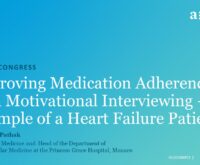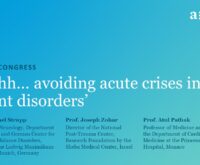Session: Improving medication adherence with motivational interviewing – example of a heart failure patient
Cardiovascular diseases are a perfect example of a chronic disease where motivational tools can improve adherence. For example, one in seven heart attack patients stop taking prescribed treatment one-month after receiving a stent which improves blood flow to the heart1,2. Understanding aspects of behavioral science, including Prochaska and Di Clemente’s Stages of Change Model, can help…


